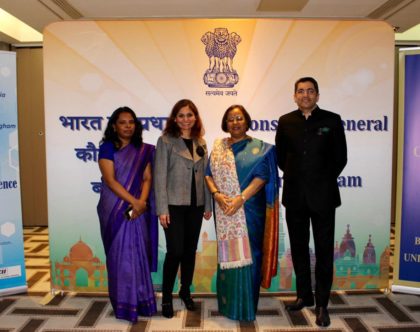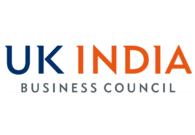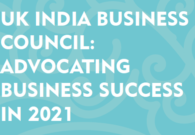Ayushman Bharat – A Tangible Opportunity for UK-India Collaboration
Following the UK-India healthcare conference hosted by the Consulate General of India in Birmingham and the Confederation of Indian Industry (CII) on 22 March 2019, the opportunities for UK-India collaboration, vital to helping deliver Ayushman Bharat, are slowly but surely becoming tangible.

This was a conference actively exploring how partnerships between UK and Indian organisations, including the private sector, can prove mutually beneficial to both countries.
Opened by the High Commissioner of India to the UK, H.E Ruchi Ghanashyam highlighted that both Governments are fully committed to supporting healthcare collaboration and stressed that we need to work together to address current challenges in this sector.
Government commitment towards tangible collaboration could not come at a more crucial time. Delivering Ayushman Bharat, the world’s largest government funded healthcare insurance scheme, could potentially benefit over half a billion people.
As Dr Indu Bhushan, CEO of the National Health Authority of India, explained at the conference, ‘the project aims to provide inpatient care worth INR 500,000 (GBP 5,495) per family per year. It will drastically reduce healthcare expenditure which pushes 60 million Indians below the poverty line every year by seeking to move from the present supply-based model to a demand-based one and from high-margin-low-volume to low-margin high-volume business model.’
As he said, ‘it’s a game-changer’ to say the least. Delivering Ayushman Bharat will be no easy task. As it stands, India requires 7.4 million healthcare professionals by 2022, more than double the existing workforce. Meanwhile, millions living in rural India do not have access to essential healthcare at all with ‘last mile delivery’ a high-priority sticking point.
What are the Opportunities?
Reassuringly, Dr Bhushan recognised the scale of this challenge, making clear that the Ayushman Bharat project will have to be delivered by working closely with the international private sector. This will be critical to tackling accessibility and affordability constraints in order to provide the same level of services to the poorest 40% population to the standard Indian’s rightfully expect.
Specifically, Dr Bhushan highlighted four key areas in which the international sector can play a role:
- Augmenting Supply: investing in additional beds, supporting enhanced demand for allied drugs, diagnostics and devices, Public-Private partnership for District Hospitals;
- Fraud and Abuse Control: using big data analytics, AI, and Machine Learning in clinical protocols and auditing;
- Quality of Services: designing effective Standard Treatment Guidelines, minimum standards for implants and devices, and contributing to telemedicine; and
- Partnership with International Public Sector: including academic collaboration in research, analytics, and evaluation as well as sharing knowledge and information.
Technology and supply are two crucial elements to this strategy.
The advantages of Health-Tech are immense. AI alone has the potential to describe, predict, and prescribe healthcare and treatments on a whole new level.
This is why the UK Government announced a £50 million investment launching five new Medical Technology Centres across the UK pioneering the use of AI in early detection, pattern recognition, patient scans, diagnosis, research, and training.
This builds on leading public-private collaboration in the UK delivering the new ‘GP at Hand’ service currently being trailed in London. Here residents can book and carry out consultations with GPs through the Babylon app.
The UK is an upward moving leader in Health-Tech which has much to offer India’s ambitions.
Already, the green shoots are there for UK-India collaboration. At the India-UK FutureTech Festival in Delhi in December 2018, the Healthcare AI Catalyst was launched between the UK’s Department for International Trade and Indian Government Think Tank, Niti Aayog. With £1 million in starter funding, this will enable some of the best AI healthcare companies from the UK deploy solution to problems faced by Indian public hospitals.
The UK and India have immense Health-Tech complementarities meaning collaboration can and will deliver tangible benefits to Ayushman Bharat. This was repeatedly reinforced from on-the-ground experience shared at the India-UK Healthcare Conference.
One example being Prof Darius F. Mirza’s (Consultant Hepatobiliary and Transplant Surgeon at the UHB NHS Foundation Trust) experience setting up a transplant program in Apollo Hospital in Mumbai which revealed a real need to share the available technology in UK with India to make such programs possible.
Addressing the Tangible Market Barriers
Whilst these first steps towards health collaboration by Governments are promising, they are modest. All the while, there remain significant market access barriers to businesses being able to meet the level and type of international collaboration outlined at the conference.
As Ayushman Bharat rapidly increases demand for pharmaceuticals, in order to augment supply, India will benefit from learning from international best practice in designing a new regulatory framework for drug pricing. This could ensure pharmaceutical availability sustainably matches affordability for Indian citizens, a case we made in UKIBC’s report, ‘Drug Pricing in India’.
As it stands, the unintended consequences of India’s current drug pricing regime remain a significant barrier in moving from the high-margin-low-volume model to the low-margin high-volume one Dr Bhushan outlined.
Likewise, harnessing the power of Big Data will be a central component in generating AI solutions critical to delivering last-mile delivery, tackling fraud and abuse, and improving the quality of services.
There is currently in the pipeline however, overlapping legislation governing the transfer and processing of healthcare data. This presents the possibility of a complex sector-localisation matrix of regulation that is difficult to implement and enforce. As we outline in the UKIBC report ‘Data: The Foundation of Intelligent Economies’, clear, coherent, and intuitive personal data protection legislation that is sector-agnostic with sensible localisation requirements, will act as a major ease of doing business reform for the sector.
To take large steps in delivering the type and shape of international collaboration India needs, addressing drug pricing and data governance barriers will go a long way.
Reassuringly, Mr. Madhukar Bose, Deputy Head of Healthcare for the Department of International Trade, highlighted some of these barriers that companies face, assuring the conference that both Governments are committed to finding solutions to these barriers.
The implementation of Ayushman Bharat will be a unique moment for India’s citizens, UK-India collaboration, and healthcare innovation across the world.
However, as this opportunity becomes more tangible, as do the market access barriers to achieving the ambitions of all involved.
To learn more about the UK India Business Council and its work to support UK and Indian businesses in the Healthcare Sector, please contact our Healthcare, Digital, and Technology Sector Manager, Meghna Misra-Elder, at Meghna.misra-elder@ukibc.com.
We would like to say a special thank you to the Consulate General of India in Birmingham, the Confederation of Indian Industry (CII), The Greater Birmingham and Solihull LEP, and the NHS University Hospitals Birmingham for organising and hosting such an insightful conference.

 By Meghna Misra-Elder
By Meghna Misra-Elder 





